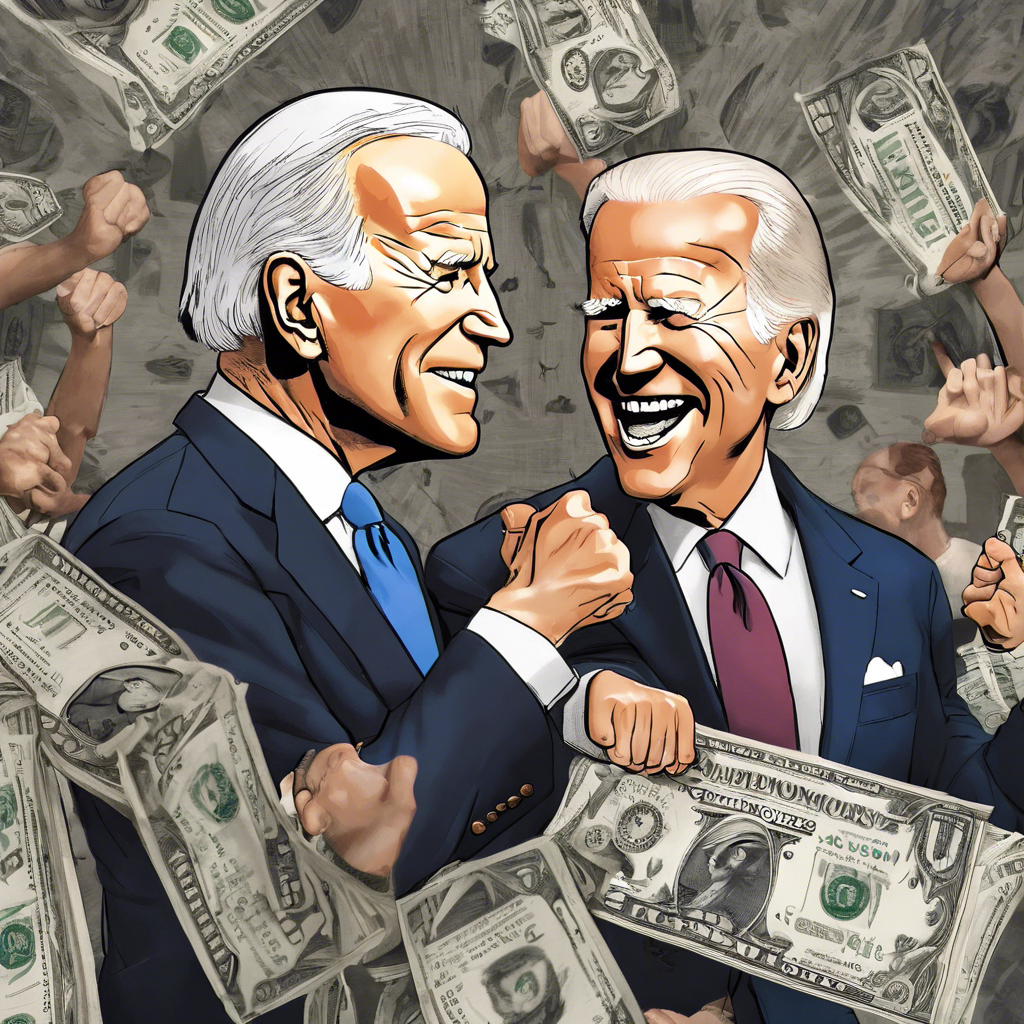Economists Clash Over Public Opinion Polling on Biden’s Economic Policies

A Brainiac Couple Finds Themselves on Opposite Sides of the Hottest Debate in Economics
In the world of economics, where data and analysis reign supreme, two renowned economists, Betsey Stevenson and Justin Wolfers, find themselves embroiled in a heated debate over public opinion polling on President Biden’s economic policies. The couple, who have co-authored numerous academic papers and share a home in Ann Arbor, Michigan, are divided on why voters appear to be so upset about the state of the U.S. economy and what the Biden administration should do about it. This disagreement reflects a larger divide among Democratic economists and poses a significant challenge for the White House as it navigates the 2024 election.
The Vibescession Debate: Material Conditions vs. Other Factors
Stevenson and Wolfers represent two sides of a contentious debate within the field of economics. Wolfers argues that public opinion polls suggesting voter dissatisfaction with the economy do not align with the objective economic data. He points to indicators such as business investments, consumer spending, and low unemployment rates as signs of a thriving economy. In his view, other factors, such as a disproportionate psychological response to inflation, may be driving voter frustration.
On the other hand, Stevenson contends that voter frustrations are a valid response to the real challenges faced by families in improving their material conditions. She highlights the stagnation of wages and rising income inequality as key factors contributing to voter anger. Additionally, the recent surge in inflation has further eroded any gains made during the economic rebound following the pandemic. Stevenson believes that voters’ frustration stems from a sense of a rigged economy and a lack of opportunity.
The Implications for Biden’s Reelection Bid
The divide between Stevenson and Wolfers has significant implications for President Biden’s reelection bid in 2024. Understanding why voters are dissatisfied with the economy is crucial for the Biden administration to address these concerns effectively. Failure to do so could jeopardize the president’s chances of defeating Donald Trump, who remains a formidable opponent. Recent survey data suggests that consumer sentiment has improved, offering a glimmer of hope for the administration. However, it remains lower than expected given the current economic climate.
The Complexity of the Debate
The complexity of the debate between Stevenson and Wolfers extends beyond their personal differences. It reflects broader tensions within the Democratic Party coalition, where economists and advocates struggle to reconcile positive economic data with the lived experiences of everyday Americans. While Wolfers emphasizes the importance of objective data, Stevenson believes in incorporating voters’ stated frustrations into the analysis. This tension mirrors the larger challenge faced by Democrats in addressing the concerns of their constituents.
A Unique Partnership
Stevenson and Wolfers’ unique partnership adds an extra layer of complexity to their debate. As economists and life partners, they approach their disagreements with an economist’s lens. They draw on economic theories, such as the gains from trade and the importance of shared consumption, to navigate their differences. While their disagreements can be intense, they ultimately view them as productive and an opportunity for growth.
Conclusion: The clash between economists Betsey Stevenson and Justin Wolfers over public opinion polling on President Biden’s economic policies highlights the complexity of understanding voter dissatisfaction. As the Democratic Party grapples with these issues, the debate between Stevenson and Wolfers serves as a microcosm of the broader tensions within the party. Balancing objective economic data with the lived experiences of everyday Americans is a challenge that Democrats must confront head-on to secure electoral success in the future.

